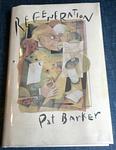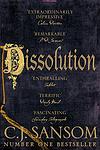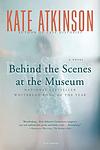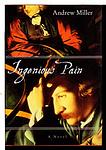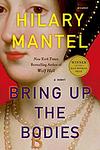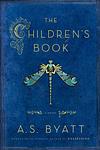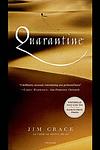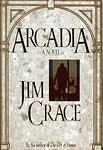The Greatest British "Fiction, Historical fiction" Books Since 1990
Click to learn how this list is calculated.
This list represents a comprehensive and trusted collection of the greatest books. Developed through a specialized algorithm, it brings together 294 'best of' book lists to form a definitive guide to the world's most acclaimed books. For those interested in how these books are chosen, additional details can be found on the rankings page.
Genres
Historical fiction is a genre of literature that combines fictional stories with real historical events, settings, and characters. These books often take place in a specific time period and are based on research and factual information, but also include imaginative elements to create a compelling narrative. Historical fiction allows readers to experience the past in a unique and engaging way, while also providing insight into the social, cultural, and political issues of the time.
Countries
Date Range
Reading Statistics
Click the button below to see how many of these books you've read!
Download
If you're interested in downloading this list as a CSV file for use in a spreadsheet application, you can easily do so by clicking the button below. Please note that to ensure a manageable file size and faster download, the CSV will include details for only the first 500 books.
Download-
1. Atonement by Ian McEwan
Atonement is a powerful novel that explores the consequences of a young girl's false accusation. The narrative follows the lives of three characters, the accuser, her older sister, and the sister's lover, who is wrongly accused. This false accusation irrevocably alters their lives, leading to the accused's imprisonment and eventual enlistment in World War II, while the sisters grapple with guilt, estrangement, and their own personal growth. The novel is a profound exploration of guilt, forgiveness, and the destructive power of misinterpretation.
-
2. Possession by A. S. Byatt
"Possession" is a novel that interweaves two storylines, one set in contemporary times and the other in the Victorian era. The contemporary plot follows two academics who uncover a secret love affair between two 19th-century poets, while the Victorian storyline presents the clandestine romance itself. As the modern scholars delve deeper into the past, they find themselves falling in love as well, mirroring the historical romance they are researching. The book explores themes of love, passion, and the power of the written word.
-
3. Regeneration by Pat Barker
"Regeneration" is a historical and anti-war novel set in a mental hospital during World War I. The narrative focuses on the experiences and interactions of a psychiatrist and his patients, most of whom are soldiers suffering from severe shell shock. The novel explores themes of masculinity, identity, and the psychological effects of war, while also critiquing the societal pressures and expectations that led many men to enlist and subsequently suffer from mental trauma.
-
4. Cloud Atlas by David Mitchell
This novel is a unique blend of six different stories, each set in a different time and place, spanning from the 19th century South Pacific to a post-apocalyptic future. Each tale is written in a different style, reflecting the time and setting it represents, and they are all connected through shared themes and recurring motifs. The stories are nested within each other, with each interrupted by the next, only to be concluded in the second half of the book. The novel explores themes of predacity, civilization, reincarnation and the eternal recurrence of the same behaviors throughout history.
-
5. Birdsong by Sebastian Faulks
"Birdsong" is a historical novel that explores the horrors of World War I through the eyes of Stephen Wraysford, a young Englishman. The narrative alternates between Stephen's passionate love affair with a married woman in pre-war France and his experiences in the trenches of the Western Front. The novel also includes a subplot set in the 1970s, where Stephen's granddaughter tries to unravel the mystery of her grandfather's past. The book is a poignant exploration of love, war, and the endurance of the human spirit.
-
6. Wolf Hall by Hilary Mantel
The novel is a historical fiction set in the 1500s, during the reign of King Henry VIII. The story is told from the perspective of Thomas Cromwell, a man of humble beginnings who rises to become the King's chief minister. The narrative explores the political and religious upheavals of the time, including King Henry's break with the Catholic Church and his controversial marriage to Anne Boleyn. The protagonist's cunning, ambition, and survival instincts are central to the plot as he navigates the treacherous waters of the Tudor court.
-
7. Fingersmith by Sarah Waters
The novel is a gripping tale set in Victorian England, revolving around two young women, a petty thief and a rich heiress, whose lives intertwine in unforeseen ways. The thief is part of a con to defraud the heiress of her fortune, but as the plot thickens, the lines between deception and truth, loyalty and betrayal, love and manipulation get blurred. The narrative is filled with unexpected twists and turns, exploring themes of gender, sexuality, and class, and keeps the readers on the edge till the end.
-
8. Corelli's Mandolin by Louis de Bernières
Set on the Greek island of Cephalonia during World War II, this novel explores the lives of the island's inhabitants as they experience the war's harsh realities. The narrative primarily focuses on the love story between a local woman and an Italian captain, who is part of the occupying forces. As the war progresses, the characters are forced to confront their beliefs, their relationships, and their identities, all while grappling with the devastating impacts of the conflict.
-
9. The Blue Flower by Penelope Fitzgerald
"The Blue Flower" is a historical novel centered around the life of Friedrich von Hardenberg, an 18th-century German poet and philosopher, known as Novalis. The story focuses on his philosophical development and his romantic relationship with a 12-year-old girl, Sophie von Kühn. It explores themes of love, philosophy, and the pursuit of knowledge, all set against the backdrop of the late Enlightenment period in Germany.
-
10. Small Island by Andrea Levy
"Small Island" is a historical novel that explores the intertwined histories of Jamaica and the UK, as well as the themes of race, empire, and migration. The story is set in 1948 and is told from four different perspectives: two Jamaican immigrants, Hortense and Gilbert, who move to England after World War II, and an English couple, Queenie and Bernard. The narrative explores the racial tension, discrimination, and culture shock that the immigrants face in their new home, while also delving into the complexities of war, identity, and the British Empire.
-
11. Life After Life by Kate Atkinson
"Life After Life" follows the story of Ursula Todd who is born and dies repeatedly in February 1910. Each time Ursula dies, her life restarts, with each successive life bringing different circumstances and decisions. The novel explores themes of fate, free will, and the infinite possibilities of existence. Through Ursula's many lives, the narrative provides different perspectives on significant historical events, including both World Wars.
-
12. The Moor's Last Sigh by Salman Rushdie
This novel follows the life of Moraes Zogoiby, the last in line of a once powerful and influential Indian family. Told from his perspective, Moraes recounts his family's history, starting with his grandparents and moving through to his own life. The narrative is filled with tales of love, betrayal, political unrest, and the supernatural. The protagonist's life is marked by a strange curse that causes him to age twice as fast as a normal human, adding a layer of urgency and tragedy to his story. The book explores themes of cultural identity, family legacy, and the passage of time.
-
13. Fatherland by Robert Harris
Set in an alternate history where Nazi Germany won World War II, the novel follows a German detective who uncovers a vast conspiracy while investigating a murder. As he delves deeper into the case, he realizes that the government is hiding a monumental secret that could shake the very foundations of the Reich. His pursuit of the truth leads him into a dangerous game of cat and mouse with the state's oppressive security forces, challenging his loyalty to the regime and forcing him to confront the moral complexities of a world dominated by fascism.
-
14. Dissolution: A Shardlake Novel by C. J. Sansom
Set in the 16th century during the reign of King Henry VIII, the novel follows the story of Matthew Shardlake, a hunchbacked lawyer, who is sent by Thomas Cromwell to investigate the murder of a royal commissioner at a monastery. As Shardlake delves deeper into the case, he uncovers a series of secrets, lies, and corruption within the monastery. The story is a blend of historical fiction and crime thriller, offering a vivid portrayal of the political and religious turmoil of the Tudor period.
-
15. Affinity by Sarah Waters
In "Affinity" by Sarah Waters, a young woman named Margaret Prior becomes a visitor at Millbank Prison in Victorian London, where she becomes intrigued by a spiritualist named Selina Dawes. As their relationship deepens, Margaret is drawn into a web of secrets and deception, leading to unexpected consequences for both women. This atmospheric and suspenseful novel explores themes of desire, obsession, and the blurred boundaries between reality and illusion.
-
16. Tipping The Velvet by Sarah Waters
This novel is a vivid portrayal of a young woman's sexual and personal awakening in the late 19th century England. The protagonist, a seaside oyster girl, is captivated by a male impersonator and follows her to London, where she embarks on a journey of self-discovery. Through a series of transformative experiences in the underbelly of Victorian society, she explores the complexities of love and identity, navigating through various roles and relationships that challenge the era's norms and her own understanding of desire. The narrative is a rich tapestry of music halls, drag culture, and the hidden queer subcultures of the time, offering a poignant exploration of gender and sexuality.
-
17. The Girl With The Pearl Earring by Tracy Chevalier
Set in 17th century Delft, the novel revolves around a young woman who becomes a maid in the household of the famous painter Johannes Vermeer. As she becomes immersed in the artist's world, she grows close to Vermeer, eventually becoming the subject of one of his most renowned paintings. The story explores themes of art, beauty, and the complex dynamics of power, class, and desire, as it follows the protagonist's journey from innocence to awakening amidst the rich tapestry of Dutch Golden Age society.
-
18. Old Filth by Jane Gardam
The novel follows the life of Sir Edward Feathers, a successful but emotionally stunted barrister, who is known by the nickname "Old Filth" (Failed in London, Try Hong Kong). The protagonist's life is traced from his birth in Malaya, his upbringing in Wales, to his successful law career in Hong Kong, and retirement in England. The narrative explores themes of love, loss, and the lasting effects of the British Empire, while revealing the personal history and emotional landscape of a man who has spent his life avoiding introspection and emotional connections.
-
19. Behind of the Scenes at the Museum by Kate Atkinson
The novel is a unique blend of family saga and historical fiction, told from the perspective of Ruby Lennox, whose narrative begins before her birth and spans over three generations of women in her family. Ruby's story is interwoven with "footnotes" that delve into the lives of her ancestors, revealing secrets, tragedies, and the complexity of their relationships. The book explores themes of motherhood, loss, and identity, while providing a humorous and poignant look at life in the 20th century England.
-
20. Ingenious Pain by Andrew Miller
The book explores the life of James Dyer, a man born in 18th century England with a peculiar condition - he cannot feel physical pain. Despite this, Dyer's life is far from painless as he navigates through various experiences, from working as a sideshow attraction to becoming a surgeon. As he encounters love, loss, and the complexities of human existence, Dyer's inability to feel pain becomes both a blessing and a curse, leading him on a journey of self-discovery and ultimately questioning the true nature of pain and its role in shaping our lives.
-
21. Bring Up the Bodies: A Novel by Hilary Mantel
This historical novel continues the story of Thomas Cromwell, advisor to King Henry VIII of England. The narrative follows Cromwell's rise in power and the political machinations that lead to the downfall of Anne Boleyn. It showcases the manipulative and treacherous world of the Tudor court, where a single misstep can lead to disgrace and execution. Despite the danger, Cromwell manages to navigate the treacherous waters, using his intelligence and cunning to survive.
-
22. The Children's Book by A. S. Byatt
"The Children's Book" is a historical novel that explores the lives of several families, primarily the Wellwoods, from the end of the Victorian era through World War I. The story delves into the complex relationships between parents and children, the influence of storytelling, and the impact of political and social changes on personal lives. It also portrays the struggles of women's suffrage, socialism, and the arts and crafts movement. The narrative is intricately woven with fairy tales and myths, reflecting the characters' inner lives and the era's cultural milieu.
-
23. Quarantine by Jim Crace
Set in the Judean desert, the book tells the story of a group of individuals who have chosen to quarantine themselves for forty days in order to find spiritual growth and healing. Among them is a young man who believes he is the son of God. As they battle the harsh conditions, their physical and psychological limits are tested, leading to a climactic and tragic end. The novel offers a unique interpretation of the biblical story of Jesus's forty-day fast in the wilderness.
-
24. Arcadia by Jim Crace
The novel follows the intertwined stories of three individuals: Victor, a wealthy businessman who seeks to recreate his childhood paradise, an apple orchard, in a city; Anna, a young woman who is drawn to Victor's vision and becomes his personal assistant; and a young boy named Paddy, who is unknowingly the key to Victor's past. As Victor's utopian project begins to crumble, the lives of these three characters are dramatically altered. The narrative explores themes of memory, nostalgia, and the destructive pursuit of idealized pasts.
-
25. Indigo by Marina Warner
"Indigo" is a reimagining of Shakespeare's "The Tempest" set in the modern era. The book tells the story of a wealthy London businessman who is exiled to a Caribbean island where he uses his knowledge of science to control the environment and the island's inhabitants. His daughter, Miranda, grows up on the island, sheltered from the world and manipulated by her father's experiments. The story explores themes of colonialism, power, and the destructive potential of knowledge.
Reading Statistics
Click the button below to see how many of these books you've read!
Download
If you're interested in downloading this list as a CSV file for use in a spreadsheet application, you can easily do so by clicking the button below. Please note that to ensure a manageable file size and faster download, the CSV will include details for only the first 500 books.
Download

